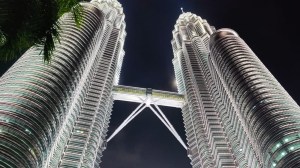Pak travels long way from Agra without India budging an inch
It has been a long and bloody road from Agra to Kaluchak and the assassination of Abdul Gani Lone. But in the hype created about the dangers...

It has been a long and bloody road from Agra to Kaluchak and the assassination of Abdul Gani Lone. But in the hype created about the dangers of war, the inhumanity of terrorism, and the risks of a nuclear holocaust, what is getting ignored is that New Delhi’s overall comprehensive political-diplomatic-military strategy is succeeding.
What the acceptance of Islamabad’s demand for a separate working group on Kashmir, the magnanimity toward Nawaz Sharif’s elected government including the unusual gesture of the Prime Minister travelling by bus for dialogue at Lahore, the symbolic gesture at the Minar-e Pakistan, the victory at Kargil against Pakistan Army’s clandestine aggression in Kargil during the summer of 1999, and the invitation to Islamabad’s commando on the horseback for dialogue at Agra could not produce, has now been achieved by the demonstrated resolve to raise the costs of Islamabad’s flawed assumption that, under the nuclear umbrella, it could continue its so-called ‘‘low cost option’’ of bleeding India through a thousand cuts.
|
Vajpayee and Musharraf during the Agra summit |
This is clear to anyone who cares to sit back and objectively assesses the developments. Pakistan’s long-held deeply sanctified grand strategy of using terror as an instrument of policy, especially by religiously fired jehadi fighters, to serve ideological and political goals has backfired.
And not just in Afghanistan where the policy of expansion for ‘‘strategic depth’’ had become counter-productive even when it was being put in place.
The symbols and substance of jehadi terrorism, the Al Qaeda, have diffused into Pakistan. And the United States war against terrorism has also shifted into the territories of its old ally. The US has declared its intention to eliminate Al Qaeda in Pakistan with the same determination with which it attacked them in Afghanistan. New Delhi seeks the end of terrorism and the two wars have converged even if the tactics and battles vary.
General Musharraf, who has been harping on a dialogue with India, was invited to Agra with the expectation that this might help move toward peace. As we know, the talks failed because he was not willing to start addressing the issue of cross-border terrorism. Perhaps, it is not his fault if he ignored Deng Xiao Ping that we must seek truth from facts.
But the president, who at Agra was unwilling even to consider the term cross-border infiltration, now repeats that no infiltration will be allowed across the Line of Control in J&K. He has often repeated that no terrorism will be allowed from Pakistani territory anywhere in the world—even in the name of Kashmir. Since no one else had ever pointed a finger at Islamabad for terrorism elsewhere except in India, the references were clear.
At Almaty he even asserted that ‘‘we cannot allow individual or group terrorism on any pretext.’’ That should end his myth of ‘‘freedom struggle.’’
Pakistan, which kept threatening India and the international community with nuclear weapons with irresponsible regularity, now admits publicly that it would be insane to even think of using them. Realisation seems to be finally dawning that there is always a counter to any strategy that is adopted provided there is will and time to work out the appropriate responses in a given environment.
The environment has now been ripe for counter-terrorist strategies. Any country supporting terrorism now is not only subject to punitive actions under the UN Security Council resolution 1373, but would be sailing against the powerful tide of international opinion.
New Delhi’s comprehensive strategy has been succeeding and will continue to do so in the coming days and months. It is feasible to employ military force for limited objectives below the nuclear overhang as long as it remains calibrated, layered, and controlled in what may be termed as a war in slow motion. This may take time.
The main instrument will remain diplomacy with force in reserve, as has been the case so far. What we need to be careful about is to ensure that we do not overstretch the strategy nor should we give up too soon, or for too little.
The decisive battle is against terrorism and not against Pakistan although the distinction often gets blurred. And meanwhile we should look out for provocative and demonstrative acts of terrorism designed to push for an over-reaction.
Photos



- 01
- 02
- 03
- 04
- 05




























